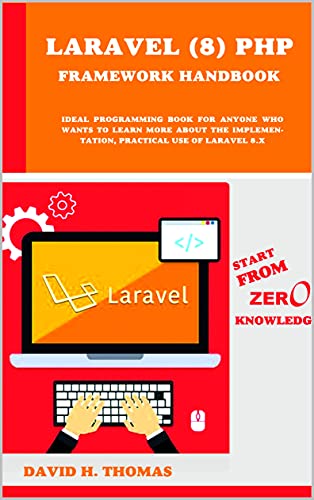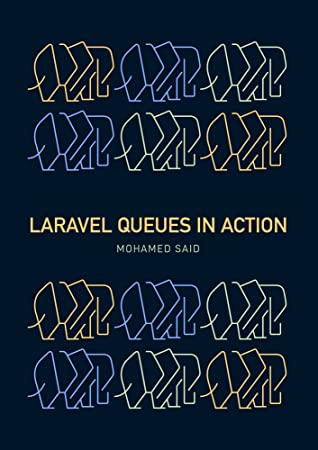Download this EPUB book: Essential Math for AI: Next-Level Mathematics for Efficient and Successful AI Systems 1st Edition by Hala Nelson
All the math we need to get into AI. Math and AI made easy...
Many industries are eager to integrate AI and data-driven technologies into their systems and operations.
But to build truly successful AI systems, you need a firm grasp of the underlying mathematics. This comprehensive guide bridges the gap in presentation between the potential and applications of AI and its relevant mathematical foundations.
In an immersive and conversational style, the book surveys the mathematics necessary to thrive in the AI field, focusing on real-world applications and state-of-the-art models, rather than on dense academic theory.
You'll explore topics such as regression, neural networks, convolution, optimization, probability, graphs, random walks, Markov processes, differential equations, and more within an exclusive AI context geared toward computer vision, natural language processing, generative models, reinforcement learning, operations research, and automated systems.
With a broad audience in mind, including engineers, data scientists, mathematicians, scientists, and people early in their careers, the book helps build a solid foundation for success in the AI and math fields.
You'll be able to:
Comfortably speak the languages of AI, machine learning, data science, and mathematics
Unify machine learning models and natural language models under one mathematical structure
Handle graph and network data with ease
Explore real data, visualize space transformations, reduce dimensions, and process images
Decide on which models to use for different data-driven projects
Explore the various implications and limitations of AI
Who This Book Is For?
A person who knows math but wants to get into AI, machine learning, and data science.
A person who practices AI, data science, and machine learning but wants to brush up on their mathematical thinking and get up-to-date with the mathematical ideas behind the state-of-the-art models.
Undergraduate or early graduate students in math, data science, computer science, operations research, science, engineering, or other domains who have an interest in AI.
People in management positions who want to integrate AI and data analytics into their operations but want a deeper understanding of how the models that they might end up basing their decisions on actually work.
Data analysts who are primarily doing business intelligence, and are now, like the rest of the world, driven into AI-powered business intelligence. They want to know what that actually means before adopting it into business decisions.
People who care about the ethical challenges that AI might pose to the world and want to understand the inner workings of the models so that they can argue for or against certain issues such as autonomous weapons, targeted advertising, data management, etc.
Educators who want to put together courses on math and AI.
Any person who is curious about AI.
Who This Book Is Not For?
This book is not for a person who likes to sit down and do many exercises to master a particular mathematical technique or method, a person who likes to write and prove theorems, or a person who wants to learn coding and development.
This is not a math textbook. There are many excellent textbooks that teach calculus, linear algebra, and probability (but few books relate this math to AI). That said, this book has many in-text pointers to the relevant books and scientific publications for readers who want to dive into technicalities, rigorous statements, and proofs.
This is also not a coding book. The emphasis is on concepts, intuition, and general understanding, rather than on implementing and developing the technology.
What Math Background Is Expected from You to Be Able to Read This Book?
This book is self-contained in the sense that we motivate everything that we need to use. I do hope that you have been exposed to calculus and some linear algebra, including vector and matrix operations, such as addition, multiplication, and some matrix decompositions.
I also hope that you know what a function is and how it maps an input to an output. Most of what we do mathematically in AI involves constructing a function, evaluating a function, optimizing a function, or composing a bunch of functions.
You need to know about derivatives (these measure how fast things change) and the chain rule for derivatives. You do not necessarily need to know how to compute them for each function, as computers, Python, Desmos, and/or Wolfram|Alpha mathematics do a lot for us nowadays, but you need to know their meaning.
Some exposure to probabilistic and statistical thinking are helpful as well. If you do not know any of the above, that is totally fine. You might have to sit down and do some examples (from some other books) on your own to familiarize yourself with certain concepts.
The trick here is to know when to look up the things that you do not know…only when you need them, meaning only when you encounter a term that you do not understand, and you have a good idea of the context within which it appeared. If you are truly starting from scratch, you are not too far behind. This book tries to avoid technicalities at all costs.
From the Author
I wrote this book in purely colloquial language, leaving most of the technical details out. It is a math book about AI with very few mathematical formulas and equations, no theorems, no proofs, and no coding.
My goal is to not keep this important knowledge in the hands of the very few elite, and to attract more people to technical fields. I believe that many people get turned off by math before they ever get a chance to know that they might love it and be naturally good at it. This also happens in college or in graduate school, where many students switch their majors from math, or start a Ph.D. and never finish it.
The reason is not that they do not have the ability, but that they saw no motivation or an end goal for learning torturous methods and techniques that did not seem to transfer to anything useful in their lives.
It is like going to a strenuous mental gym every day only for the sake of going there. No one even wants to go to a real gym every day (this is a biased statement, but you get the point).
In math, formalizing objects into functions, spaces, measure spaces, and entire mathematical fields comes after motivation, not before. Unfortunately, it gets taught in reverse, with formality first and then, if we are lucky, some motivation.
In this book I will extract the math required for AI in a way that does not deviate at all from the real-life AI application in mind. It is infeasible to go through existing tools in detail and not fall into an encyclopedic and overwhelming treatment.
What I do instead is try to teach you how to think about these tools and view them from above, as a means to an end that we can tweak and adjust when we need to.
I hope that you will get out of this book a way of seeing how things relate to each other and why we develop or use certain methodsamong others. In a way, this book provides a platform that launches you to whatever area you find interesting or want to specialize in.
Another goal of this book is to democratize mathematics, and to build more confidence to ask about how things work. Common answers such as "It's complicated mathematics," "It's complicated technology," or "It's complex models," are no longer satisfying, especially since the technologies that build on mathematical models cur‐ rently affect every aspect of our lives.
We do not need to be experts in every field in mathematics (no one is) in order to understand how things are built and why they operate the way they do.
More info in the preface :).
About the book:
Publisher : O'Reilly Media; 1st edition (February 14, 2023)
Language : English
Paperback : 602 pages
File : EPUB, 12MB
Free Download the Book: Essential Math for AI: Next-Level Mathematics for Efficient and Successful AI Systems 1st Edition by Hala Nelson
PS: Share the link with your friends
If the Download link is not working, kindly drop a comment below, so we'll update the download link for you.
Happy downloading!









